Who should be the next ex-Kentucky men’s basketball player to have a jersey retired?
When Kentucky retired a No. 22 jersey in honor of the late Mike Pratt on Feb. 4, it marked the first such honor for an ex-UK men’s basketball player since Tony Delk’s No. 00 was unveiled in the Rupp Arena rafters in 2015.
For a school that self-proclaims “the greatest tradition in the history of college basketball,” eight years between jersey retirements for former players is too long. Even though UK already has 45 retired jerseys — 39 for former players, four for ex-coaches and two for contributors to the Kentucky men’s hoops program — there is a backlog of deserving ex-Cats who should have their jerseys hanging in the rafters at Rupp.
Below, I will share my opinion on who should be the next eight former UK players to have jerseys retired — but first a reminder on process.
Regardless of sport, before an individual is eligible for retired jersey consideration at Kentucky, one must first be elected to the UK Athletics Hall of Fame. Those choices are made by a committee consisting of media members, previous Hall of Famers, campus representatives, current coaches and other athletics department personnel.
Five years after being elected to the UK Hall of Fame, an individual then becomes eligible for jersey retirement. A separate committee from the one that makes the Hall of Fame choices handles those deliberations.
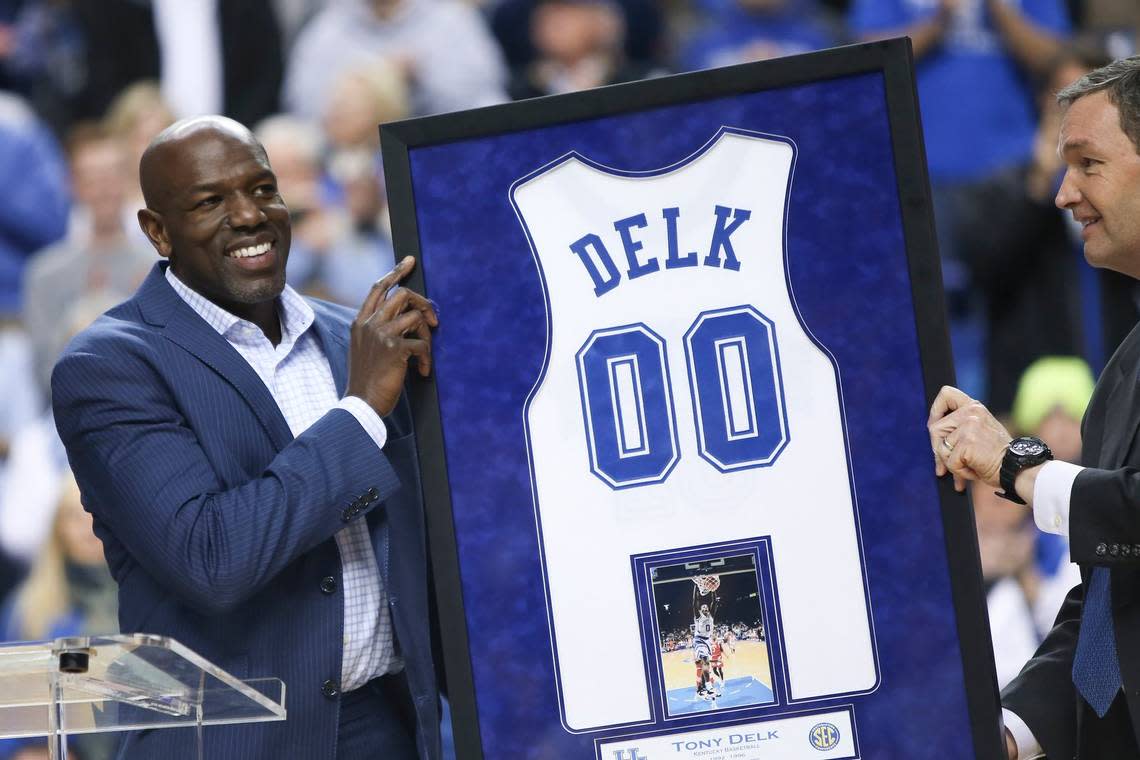
As for which ex-UK basketball players the University of Kentucky should next honor with retired jerseys, here is one opinion:
1. Mike Casey (1967-71). Casey was part of a “Big Three” at UK in the same class with Dan Issel and Mike Pratt — yet the former Shelby County star is now the only one from that trio not to have a retired jersey.
In their first varsity season at UK (1967-68), Casey was the best player among the Issel-Casey-Pratt trio. Casey averaged 20.0 points a game in 1967-68 and was a consensus first-team All-SEC choice. Issel averaged 16.4 points and Pratt 14.1 that season.
Issel blossomed into Kentucky’s star the next season as a junior (26.6 points), but Casey (19.1 points) remained UK’s primary perimeter threat. Casey missed what would have been his senior season in 1969-70 due to injuries suffered in a car accident. Returning in 1970-71, Casey was not the same player as before his wreck, but he still averaged 17.0 points a game.
Casey — who died in 2009 at age 60 — is the 14th all-time leading scorer at UK (1,535 career points). He’s also 37th in career rebounds (558) and 32nd in career assists (260).
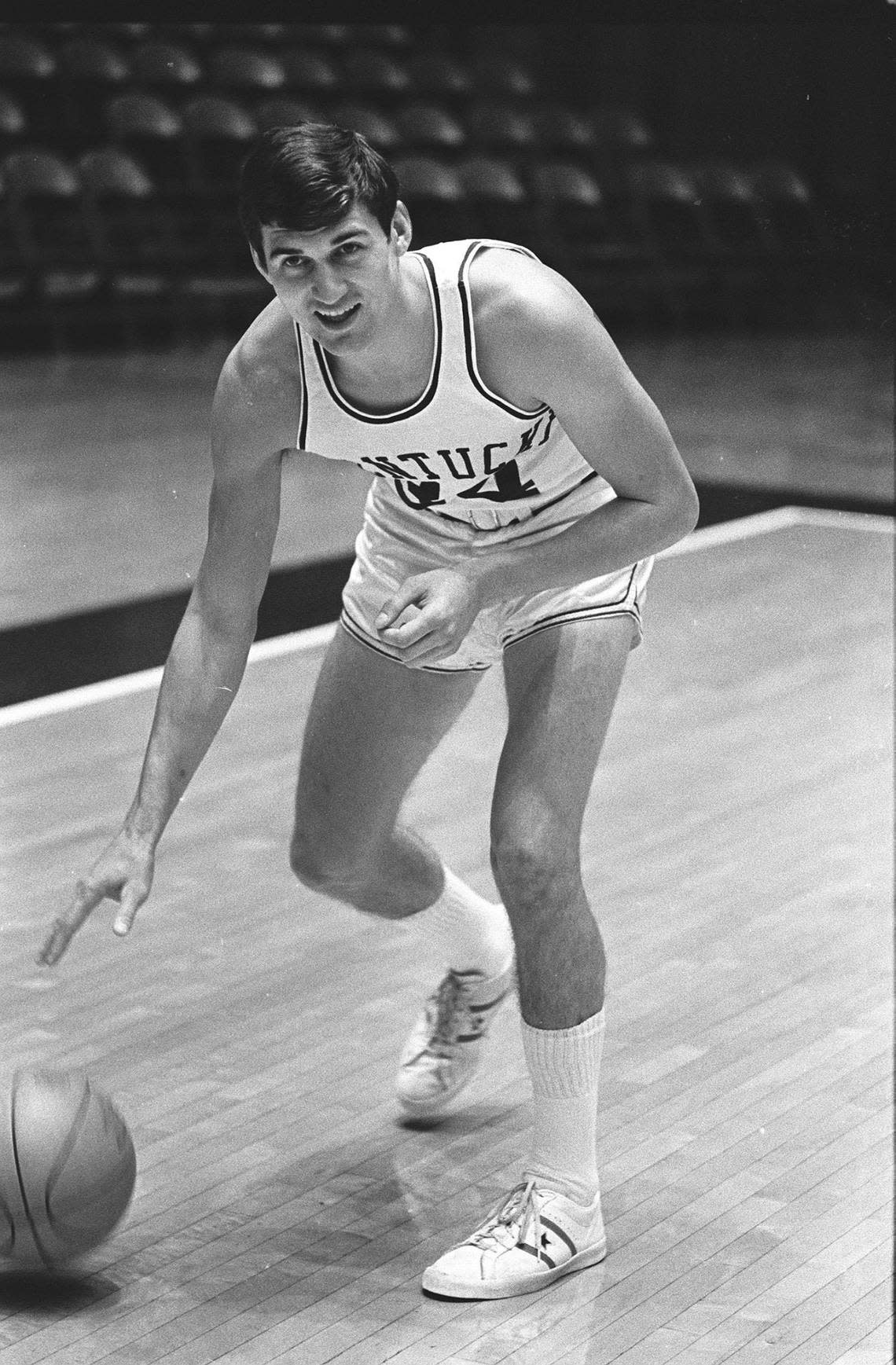
2. Melvin Turpin (1980-84). Because the former Bryan Station High School star battled weight issues throughout his NBA career, I don’t think his UK achievements have been given the respect they deserve.
The 6-11, 240-pound center is the 16th-leading scorer in UK history (1,509 points) and the 22nd all-time rebounder (730). His career field-goal percentage (59.11) is the 10th-best in Kentucky history. In Turpin’s senior season, 1983-84, he was the leading scorer (15.2 points) on a Final Four team and was a consensus second-team All-American.
Sadly, Turpin died in 2010 at age 49 of a self-inflicted gunshot wound. Posthumously, he deserves the highest honors UK Athletics can confer. Putting the “Big Dipper” into the UK Athletics Hall of Fame should only be the start.
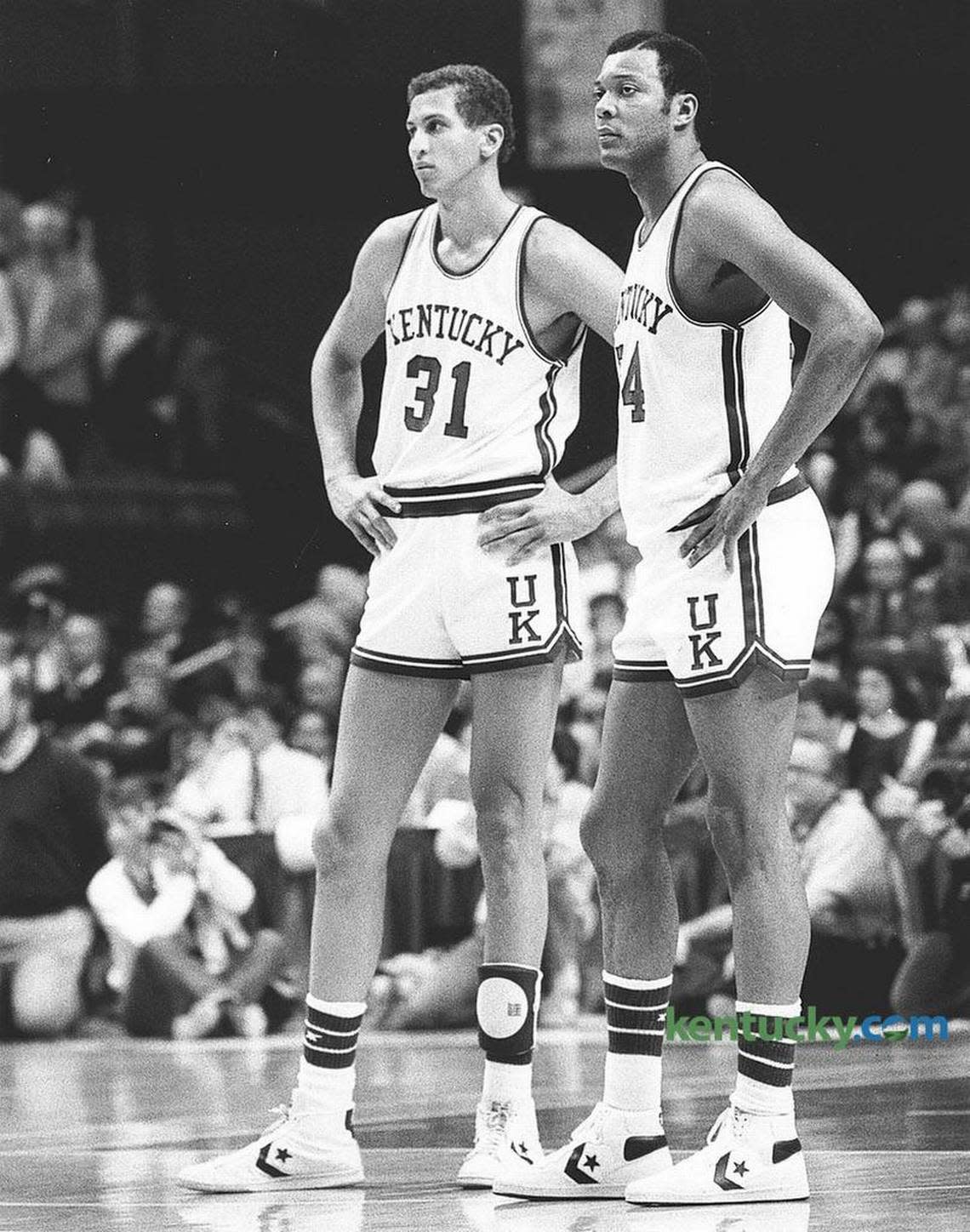
3. Tayshaun Prince (1998-2002). The willowy left-handed forward is eighth in all-time scoring (1,775 points) in UK history and the 20th-leading rebounder (757). As a junior in 2000-01, Prince was the SEC Player of the Year and the SEC Tournament MVP.
As a senior in 2001-02, the 6-9, 213-pound Prince scored 41 points in an 87-82 win over Tulsa in the NCAA Tournament round of 32, one of the best individual efforts ever by a Kentucky player in the NCAA tourney.
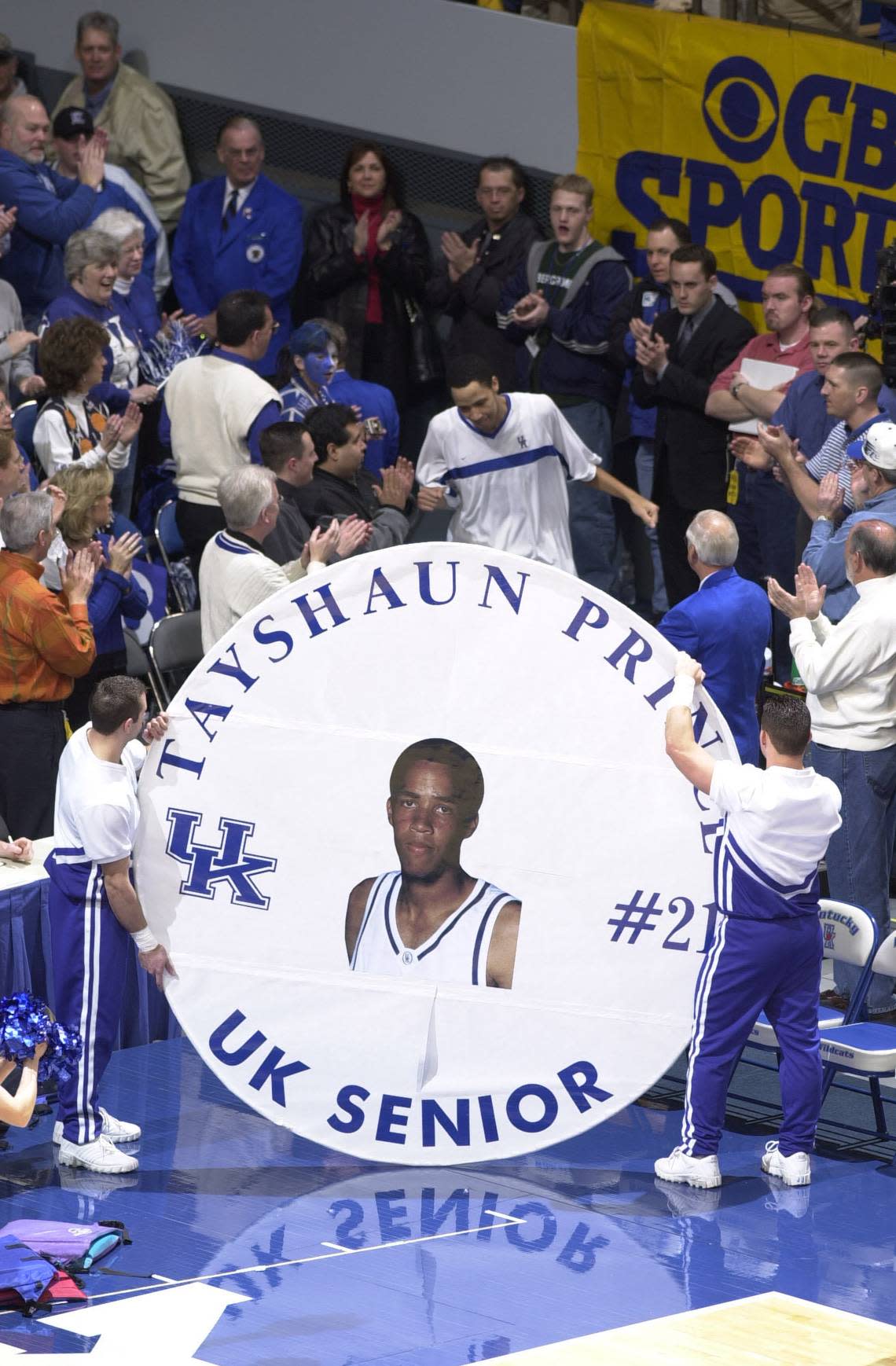
4. Keith Bogans (1999-2003). A rugged 6-5, 213-pound guard, Bogans is the fourth all-time-leading scorer in Kentucky basketball history (1,923 career points). The Alexandria, Va., product is also 39th all-time in rebounding at UK (552) and 17th in assists (314).
As a senior in 2002-03, Bogans was the best player on a UK team that won 26 games in a row before falling to Marquette in the NCAA Tournament Elite Eight. That season, Bogans was voted SEC Player of the Year by the league’s coaches and earned SEC Tournament MVP honors.
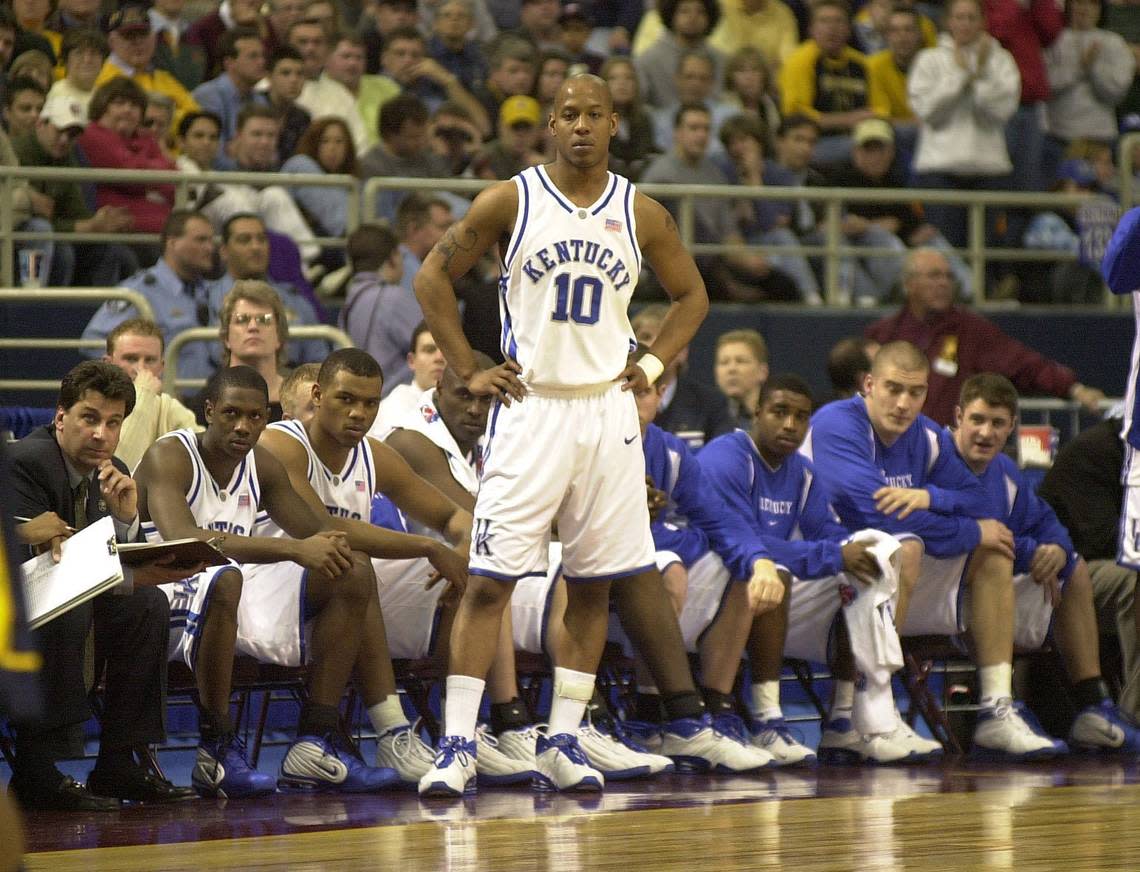
5. Chuck Hayes (2001-2005). The impact the 6-6, 242-pound Hayes had on Kentucky basketball is proof that numbers are not the whole story. A resolute defender who prioritized team success, Hayes was the constant in the best three-year stretch — 32-4 in 2002-03; 27-5 in 2003-04; 28-6 in 2004-05 — of the Tubby Smith coaching era.
Hayes is 40th all-time at UK in points (1,211); seventh in rebounds (910); 21st in assists (292); and eighth in steals (170).
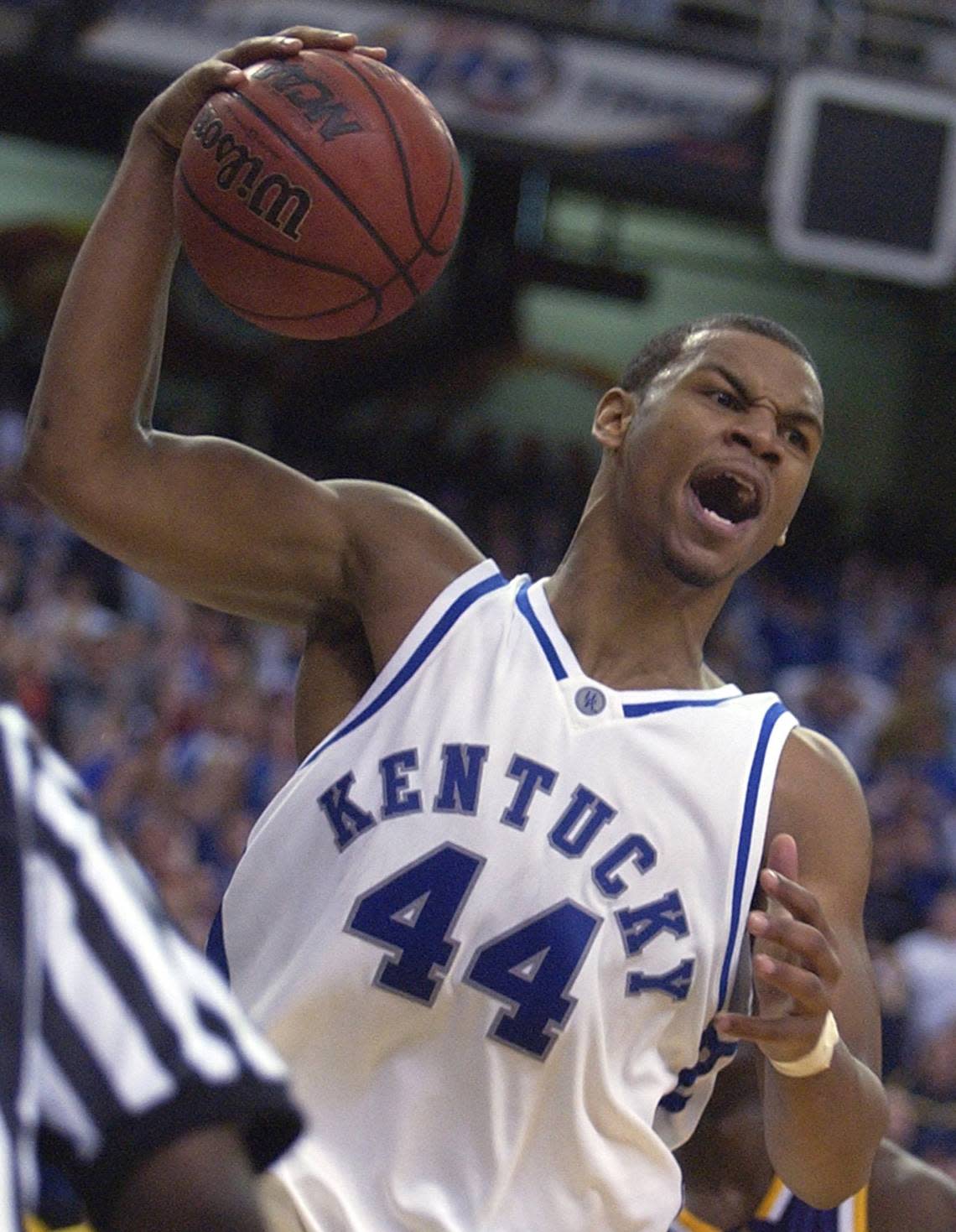
6. John Wall (2009-10). Much the way Jamal Mashburn legitimized Rick Pitino’s rebuilding project at Kentucky, Wall did the same for John Calipari. In his one season at UK, Wall electrified fans with his dynamic play — and launched a statewide dance craze.
For a program that had suffered double-digit losses in four straight seasons before his arrival, Wall led the Wildcats to a 35-3 record and the 2010 NCAA Tournament Elite Eight. His 616 points are the 19th-best single-season total in UK history; his 241 assists are the second-best by a Kentucky player; and his 66 steals the ninth-best single-season mark at UK.
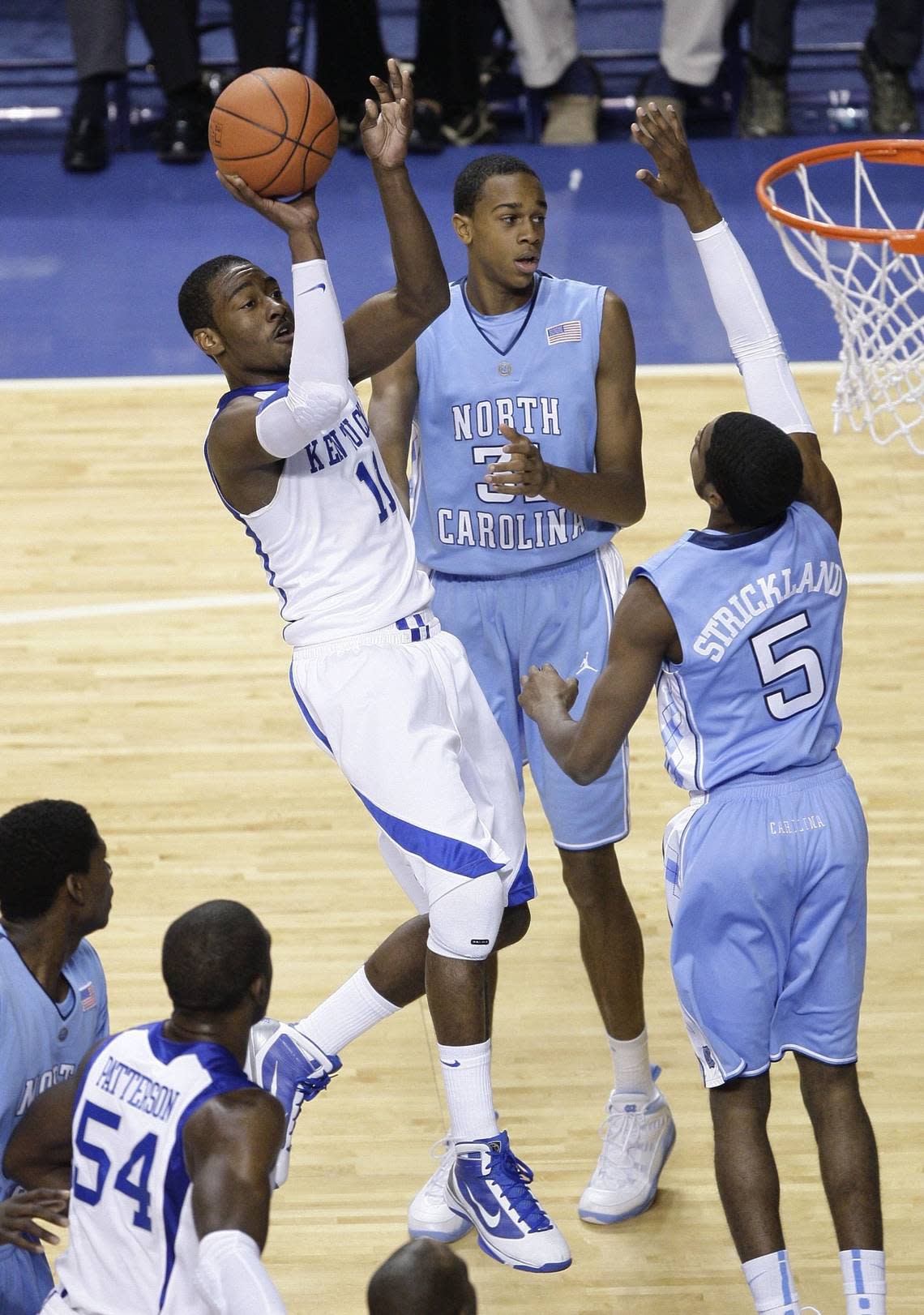
7. Anthony Davis (2011-12). Has any UK athlete in any sport had a more successful season than 2011-12 was for Davis? While leading Kentucky (38-2) to its eighth men’s hoops NCAA championship, the 6-10, 220-pound Davis was named national player of the year by every major outlet but one. He won the Wooden Award, was named National Defensive Player of the Year by the NABC and National Freshman of the Year by the U.S. Basketball Writers Association.
The Chicago product’s one season at UK yielded the 39th-most points scored in a season (567); the seventh-most rebounds (415); the most blocked shots (186); and the 30th-most steals (54).
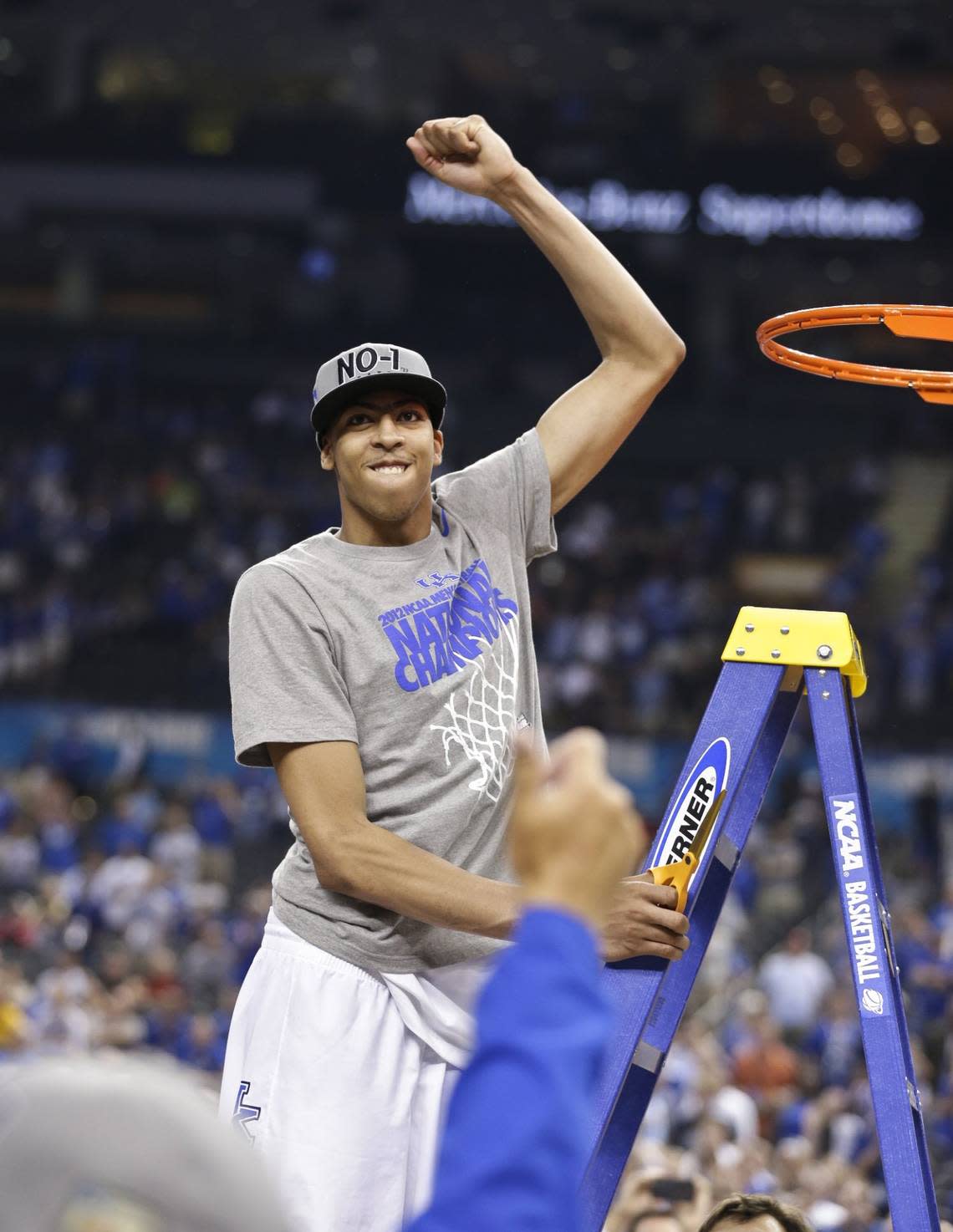
8. Tyler Ulis (2014-16). After carving a niche as a valuable “game closer” on Kentucky’s 38-1 Final Four team in 2014-15, the 5-9, 160-pound Ulis came back as a sophomore in 2015-16 and produced, arguably, the best season by a point guard in modern UK basketball history.
While joining Anthony Davis in being Kentucky players to win both SEC Player of the Year and Defensive Player of the Year honors, Ulis scored 606 points (24th-best season in UK history), doled out 246 assists (the best season in UK history) and pilfered 51 steals (36th-best season mark in UK history).
At a school lately known for one-and-dones, the cumulative achievements in the two-and-through career of Ulis should be enough, eventually, to earn a Kentucky retired jersey.
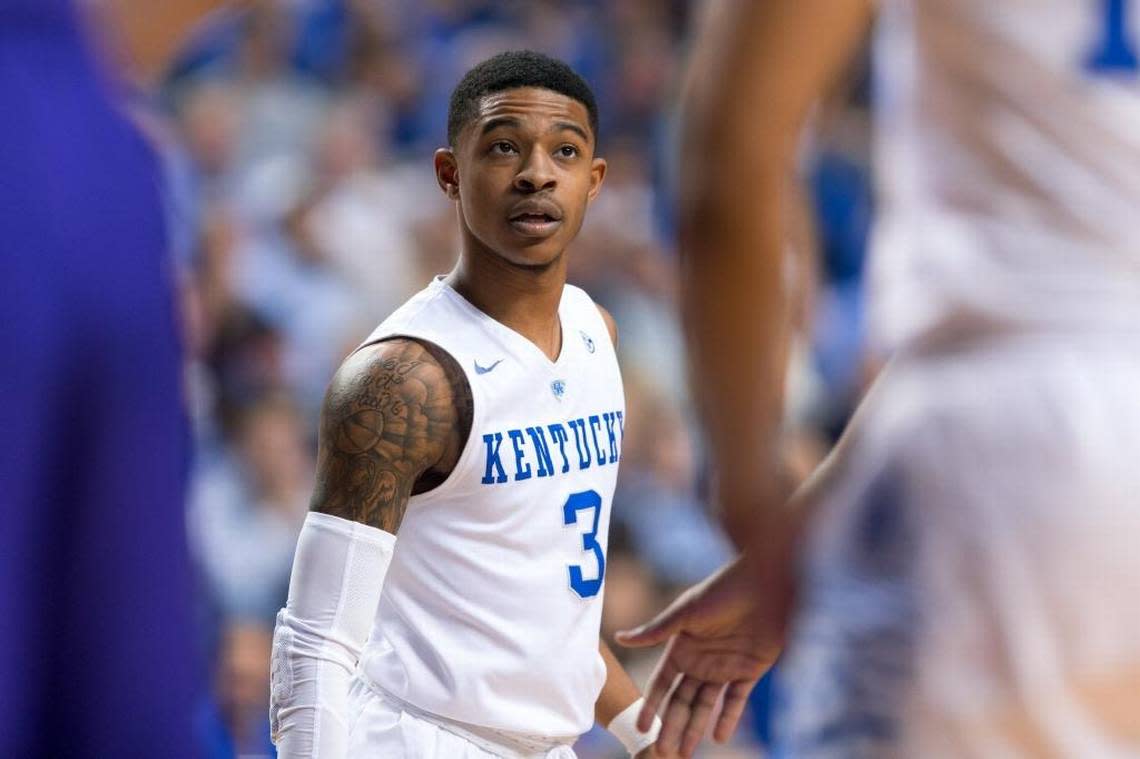
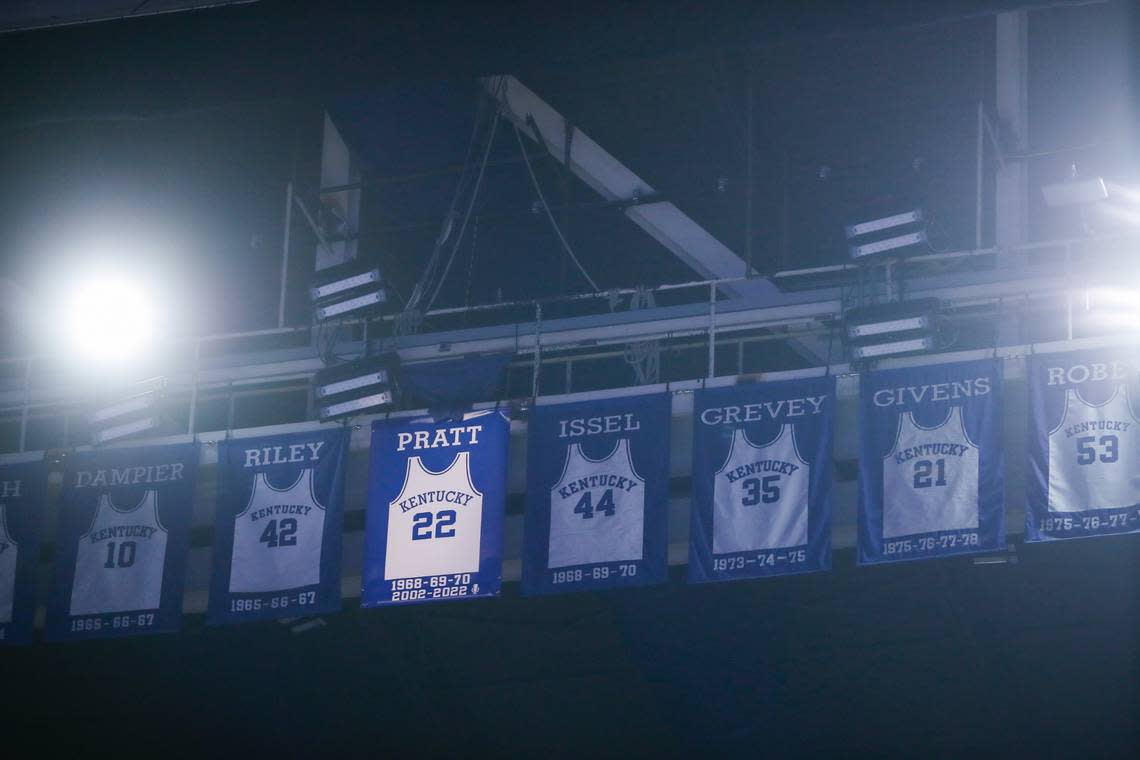
Crystal ball out, who will be the best in Kentucky sports in 2023?
Kings point guard De’Aaron Fox going to first NBA All-Star Game as injury replacement
‘This will always be home.’ Kentucky basketball legend Rhyne Howard returns to Lexington.
How have Kentucky’s freshmen stacked up with other top recruits in college basketball?
